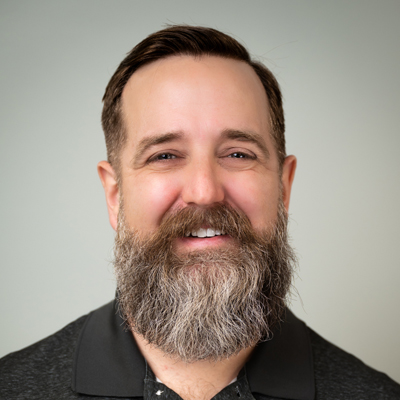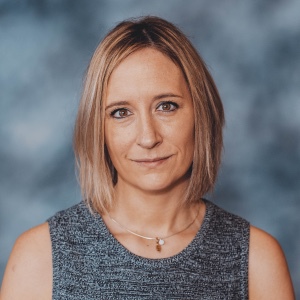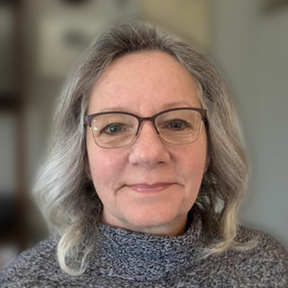Approved Education & Training, CEUs for Licensed Professionals (LADC/PLADC)
Register for Training & CEUsSubstance abuse continues to be a growing problem that affects not just abusers, but also disrupts the lives of their families and friends.
The Bellevue University SUDTE program is approved by NAADAC, the Association for Addiction Professionals. This important recognition means that the contact hours or CEUs earned will be accepted toward national credentialing by the NAADAC Certification Commission.

Medical and Psychosocial Aspects of Alcohol/ Drug Use, Abuse and Addiction
SUDT 0160
Counseling Theories and Techniques (2)
SUDT 0100
Utilizing Evidence-Based Practices in Addiction Treatment in Criminal Justice
SUDT 0196
Screening and Referral of Mental Health Disorders
SUDT 0185
CASI
SUDT 0200
Core Education: Must be a Nebraska resident and possess a high school diploma or equivalent.
Continuing Education students: Must be a Nebraska resident and possess a high school diploma or equivalent or hold a current license as an LADC.
All courses are Pass/Fail.
Prerequisite: High School Diploma/GED or equivalent.
(Click a course name below to view course details)
This 45-hour Core workshop is designed to familiarize the participants with theorists and the theories they developed. Participants will learn fundamental counseling theories and principles including: Adlerian, cognitive behavior therapy, client-centered therapy , Gestalt, rational emotive, reality and transactional analysis therapy. Participants will learn fundamental counseling techniques including: active listening, reflective feedback, summarizing, self-disclosing, display empathy, confronting, establishing rapport, and communicating at the client’s comprehension level. Participants will get hands on experience with the theories and techniques of counseling.
This 45-hour Core Educational workshop is designed to familiarize the participants with basic group theories and techniques of group counseling. Participants will study processes and dynamics of group theory, as well as techniques and methods of group counseling and facilitation.
This 30-hour Core Education course encompasses the study of the nature and needs of individuals at all developmental levels from birth to death.
This 15-hour Core Education workshop is designed to address standards of conduct and professional behavior expectations for counselors. Participants will see a strengthening of ethical reasoning skills as related to substance abuse. Participants will discuss legal issues of the profession, including: client welfare, professional competence development, values, conflicts of interest, and professional boundaries.
In this 30-hour Core Education Workshop, participants will gain knowledge on cultural, social, lifestyle, spiritual, and economic factors relevant to the provision of competent and relevant counseling to varied populations applying and/or adapting traditional counseling theories and techniques. Understanding of the basic requirements for competent cross-cultural counseling, and development of strategies for addressing cultural issues with specific populations will be addressed. Populations to be discussed include: American Indians, African Americans, Hispanics, Gay/Lesbian/Bisexual/Transgender persons and others.
This 30-hour Core workshop is designed to address the process of collecting client data for making decision regarding alcohol/drug disorder diagnosis, level of care, placement, treatment and referral. Participants learn basic principles of measurement by examining a variety of instruments used in chemical dependency counseling settings. Analysis of sample cases will provide an active-learning approach for addressing the full range of services used in managing cases in an ethical and professionally effective manner.
This 45-hour Core workshop will focus on physical, psychological, and sociological aspects of alcohol and drug use, abuse, and dependence. Provides an opportunity for students to examine their belief system about drug and alcohol use and will review the processes of addiction/dependence/withdrawal; including the signs, symptoms, and behavior patterns. An overview of the basics of drug types (including alcohol) and pharmacology; reviewing the physiology and the effects of drugs and alcohol on the human body; alcohol and drug tolerance. Included will be the etiological, behavioral, cultural, and demographic aspects of alcohol and drug use, abuse, and addiction.
This 30-hour Core Workshop will address treatment issues specific to chemical dependency including denial, resistance, minimization, family dynamics, relapse, cross-addiction, co-occurring disorders, spirituality, and influences of self-help groups. The course will discuss alcohol/drug disorders, including dual diagnosis and the impact of physical and mental health disorders on treatment. Other treatment topics include genetic and generational influences; enabling and disease concepts; role of Alcoholics Anonymous, Narcotics Anonymous, and other 12-step programs; and unique issues related to special populations. In addition, the course will study chemical dependency, clinical treatment needs of individuals taking into consideration gender, culture, and lifestyle.
All courses are Pass/Fail.
Prerequisite: High School Diploma/GED or equivalent, or hold a current license as an LADC.
(Click a course name below to view course details)
This 15-hour continuing education workshop will focus on the three types of personality disorders that are commonly found in conjunction with persons abusing substances. Data from research will be provided to help the participants understand the logical connection between personality disorders and substance abuse as well as the prevalence of such conditions. A conceptual framework for understanding persons with substance abuse problems and a co-occurring personality disorder will be provided. Participants will be presented with tools and techniques to assist substance abuse counselors in identifying potential personality disorders, strategies for making appropriate referrals, and strategies for dealing more effectively with these difficult clients in treatment settings. Specific personality disorders to be addressed include: Antisocial Personality Disorder, Borderline Personality Disorder and Avoidant Personality Disorder.
This 30-hour continuing education workshop is designed to provide participants with knowledge to improve their ability to assist staff and their clients who have co-occurring disorders, within their scope of practice. Upon completion of this workshop, the participants will have a better understanding how to incorporate the use of appropriate models of clinical supervision, and articulate effective clinical supervision elements.
This 15-hour continuing education workshop is about trauma-informed systems and services promote an understanding of the specific vulnerabilities of trauma survivors and encourage strategies to avoid inadvertent re-traumatization, which can occur in any treatment setting. A trauma informed service starts with a basic knowledge of trauma and the function of substances in coping with trauma symptoms and extends to creating recovery-oriented, safe, collaborative, empowering treatment responses and care. Within a trauma-informed environment consumers/survivors/recovering individuals can recover, heal, and participate more fully in their lives.
This 15-hour continuing education workshop is focused on "evidence-based" practices in addiction treatment and will address motivational interviewing. Participants will learn about treatment models and evidence-based practices supported by the Center for Abuse Treatment (CSAT), the National Institute on Drug Abuse (NIDA), the National Institute on Alcohol Abuse and Alcoholism (NIAAA) and other research centers. Manuals and materials describing specific evidence-based practices will be reviewed, and discussed.
This 12-hour continuing education course will provide a general overview about gender competencies and culturally diverse communities and their experience with substance abuse. Training based on this workshop will lead the participant to understand the multicultural dimensions of substance abuse and the dimensions of the connection between race, ethnicity, and gender.
This 12-hour continuing education course is intended to increase the knowledge and skills of addiction professionals to recognize mental health disorders that often co-occur with substance abuse and addiction clients. The workshop will provide critical information for addiction professionals in identification, screening, and referral of mental health disorders to appropriate professionals. In order to impact the positive outcome of addiction and substance abusing clients, practitioners must be aware of the scope and limits of professional practice, screening tools, the use of tools to benefit clients, and building the therapeutic alliance with clients who have co-occurring disorders (COD).
This 12-hour continuing education course is intended to increase the knowledge and skills of addiction professionals to understand Medication-Assisted Treatment (MAT) to provide a whole-patient approach to the treatment of substance use disorders.
All courses are Pass/Fail.
(Click a course name below to view course details)
This twenty-hour workshop will provide participants with the knowledge to become competent in correctly utilizing the CASI, a standardized adolescent-specific assessment instrument. The Comprehensive Adolescent Severity Inventory (CASI-children/youth) is the assessment tool selected by the state of Nebraska to be used as the standardized assessment tool for the Supreme Court of NE, Office of Probation Administration’s Registered Service Provider List. This workshop prepares participants to pass the State of Nebraska Standardized Model Post-Test. **Please note the offering of this workshop has two days in the first week, a four to five week break between until the third day it is offered to do assignments. Prerequisite - High School Diploma/GED or equivalent.
This twenty-hour workshop will provide participants with the knowledge to become competent in correctly utilizing the ASI, a standardized screening and assessment instrument. The Addiction Severity Index (ASI-adult) is the assessment tool selected by the state of Nebraska to be used as the standardized assessment tool for the Supreme Court of NE, Office of Probation Administration’s Registered Service Provider List. This workshop prepares participants to pass the State of Nebraska Standardized Model Post-Test. **Please note the offering of this workshop has two days in the first week, a four to five week break between until the third day it is offered to do assignments. Prerequisite - High School Diploma/GED or equivalent.
This six-hour workshop will provide participants with an overview of The American Society of Addiction Medicine (ASAM) and a review of addiction medicine based off of ASAM’s Review Course in Addiction Medicine. Completers will be able to demonstrate knowledge of ASAM and current clinical practice across the spectrum of Addiction Medicine. Prerequisite - High School Diploma/GED or equivalent, or LADC.
Prerequisite: High School Diploma/GED or equivalent, or LADC.
In addition to the Core and Continuing Educational requirements, you may choose from the following criminogenic offerings:
(Click a course name below to view course details)
This 6-hour continuing education workshop for criminal justice hours will focus on the topic of ethics for clinicians that work with substance abusing criminal justice clients. Clinicians will review a brief history of ethical principle and how they apply to criminal justice clients with addictions. Specific principles and challenges will be taught to enhance problem solving skills in ethical issues. Clinicians will have an opportunity to apply decision making skills on case studies.
This 6-hour workshop continuing education workshop for criminal justice hours provides substance abuse counselors with an overview of domestic violence. This information will help counselors understand the particular needs and behaviors of batterers. It will also provide direction and guidance in the preparation of treatment plans for those involved in care for the batterer.
This 6-hour workshop continuing education workshop for criminal justice hours provides a focus on how to do therapy with families in which at least one member is dependent on alcohol or other drugs and an offender. It presents approaches and methods to use in organizing therapy with chemically dependent families, makes suggestions for treatment strategies, and offers specific, systems-based techniques.
This six-hour continuing education workshop for criminal justice hours will address concepts of motivational interviewing in relation to substance abusing criminal offenders. Participants will discuss the atmosphere of change and critical conditions necessary for change to occur. Specific strategies and tools will be taught to build motivation for change within this specific population.
This six-hour continuing education workshop for criminal justice hours will provide an overview of group facilitation for substance abuse treatment for criminal offenders. The goal of the course will be to provide practitioners with practical strategies for a successful substance abuse group. The stages of group development and stages of individual behavioral change will be identified and facilitation challenges will be explored with probable solutions. Practical group facilitation skills will be modeled and participants will be able to practice their new skills with feedback from their peers.
This six-hour continuing education workshop for criminal justice hours is designed as an interactive skills training and learning experience in drug and alcohol rituals and their meaning and importance in today's gang society. A perspective of their drug use will be explored along with their cultural language, affiliations and customs. The idea of criminogenics will be examined in relation to rural America and the changing trends relating to gang influence and substance abuse.
This six-hour continuing education workshop for criminal justice hours will provide an overview of Evidence Based Practices in working with offenders and substance abuse. Participants will gain knowledge and practice in being able to identify predictors of recidivism and use the 8 principles of effective intervention when working with substance abusing offenders. Practical knowledge and skills will be role played with substance abuse providers in order to apply evidence based skills in practice when working with special populations.
This six-hour continuing education workshop for criminal justice hours will explore the criminogenic needs which impact youthful offenders in the criminal justice system. Participants will learn how deficiencies in the various criminogenic needs contribute to ongoing criminal and anti-social behavior. The interplay of these needs along with family dynamics and substance use will be highlighted to show how specific interventions are more useful than others.
Note: Completion of these courses alone does not guarantee state or regional certification or licensure. Refer to your state licensing agency for specific information on certification requirements.

Reed Campbell, MA, LIMHP, LADC
Reed Campbell is a Licensed Independent Mental Health Practitioner and a Licensed Alcohol and drug counselor. He has over 20 years of experience working in the areas of drug and alcohol prevention and treatment. He possesses a bachelor’s degree in Addiction Studies from the University of South Dakota and was endorsed in drug and alcohol prevention, as well as drug and alcohol treatment. He received his master’s degree from Doane College in Counseling with an emphasis in Drug and Alcohol Treatment. He currently operates a solo private practice for outpatient clinical services.

Denise Gaines, MS, LIMHP, LADC
Denise has over 27 years of experience in mental health and addictions, working in various settings in the past including residential treatment, outpatient therapy, and the criminal justice system. She is dually licensed as an LIMHP and LADC in Nebraska and is pursuing a Ph.D. in Psychology. Denise owns Eunoia- A Beautiful Thinking Mind, LLC, a private practice where she actively pursues her passion for helping her clients overcome depression, anxiety, addiction, and a myriad of other conditions. She also teaches as an Adjunct Instructor at Bellevue University in the Behavioral Science Undergraduate degree program. Additionally, Denise offers community workshops on topics like depression, anxiety, and mindset change.
In her spare time, Denise loves to travel with her husband and children.

Dr. Ronicka Schottel, EdD, LIMHP, LADC, SAP
Ronicka Schottel specializes in individuals and couples who have a substance use disorder or are in recovery. She received a B.S. in Criminology and Women’s Studies from Kansas State University and a Master’s in Public Administration (MPA), a master’s in Criminal Justice, and master’s in Clinical Mental Health. She also pursued her doctorate degree in Educational Leadership through Doane University. Ronicka holds Gottman level I and II certifications for couples counseling as well as Couples in Recovery certifications.
Ronicka has managed a domestic violence shelter, volunteered for the Nebraska Aids Project as a victim advocate, worked for Lancaster County Adult Probation, and has instructed undergraduate classes in the areas of criminal justice, sociology, and counseling for 13 years. She has presented webinars on ethics, substance use and families, and evidenced based practices for addiction treatment. She has been in the behavioral health care field for 15 years.
Ronicka is passionate about traveling and has been to all 7 continents and swam in all 5 oceans. She also spent 30 days in Africa helping test for HIV and educating citizens about HIV/AIDS.

Kendra Slater, MS, LIMHP, LADC
Kendra Slater has worked in the human services field for eighteen years. She is an Independent Mental Health Practitioner and a Licensed Drug and Alcohol Counselor. Slater has experience working with adults and adolescents and has worked in residential, outpatient and in-home settings and is on the Nebraska preferred provider list for probation for adults and adolescents. She has been working as a therapist for the past nine years and has experience with case management and family support as well. She has been training in DBT and facilitating skills groups for three years in addition to chemical dependency groups. She also has experience working with individuals in the criminal justice system, juvenile justice system, family court system, and individuals with depression, anxiety, bipolar disorder, and trauma.

Ann Williams, LADC, LIMHP
Ann Williams has 40+ years’ experience working in the helping professions in the medical as well as the human service industry. Williams works with adults throughout their lifespan. She has a private practice in which she serves clients with behavioral health issues that include mental illness and substance use disorders and she specializes in trauma-focused care utilizing a wide variety of skills to assist clients with recovery and improvement of life. She is also a member of the Foster Care Review Board for Nebraska to assist with making sure children in the foster care system are having their needs fully met. Williams graduated from Bellevue University with a Master of Science in Human Services followed by a Master of Science in Clinical Counseling (2012), and has been an adjunct Professor with Bellevue University since 2016.
Note: Please note that these classes are not for college credit, and financial aid will not cover the cost.
For more information or help with registration, contact:

Jack Nelson, MPA, Program Manager
402.557.7803
[email protected]
Jack Nelson received his Master’s in Public Administration (MPA) from the University of Nebraska – Omaha with a focus on nonprofit management and an undergraduate degree in Business/Vocational Education from the University of Northern Iowa. Nelson has over 30 years of experience working and teaching in nonprofit organizations including in childcare, healthcare, and education. He has been an adjunct professor for Bellevue University in the College of Arts and Sciences since 2005 and also teaches in the College of Business undergraduate Nonprofit Management program.
Currently, Nelson is the Program Manager who oversees contracts and special programs within the Community of Practice focused on behavioral health in Bellevue University Continuing Education. Other experiences that provided a foundation for his career include roles as an Organizational Development Consultant for a regional healthcare organization, a Director of Programs for a childcare agency and as Program Consultant working with small and medium nonprofit childcare organizations focused on program development.
SUDTE noncredit courses are derived from quality college courses containing relevant skills and competencies, assessed for validity, and updated frequently to ensure you are well-prepared as a counselor.
Bellevue University is a private, nonprofit postsecondary school accredited by the Nebraska Dept. of Education and the Higher Learning Commission with a proven track record of producing and providing quality education for alcohol and drug counselors statewide for the State of Nebraska.